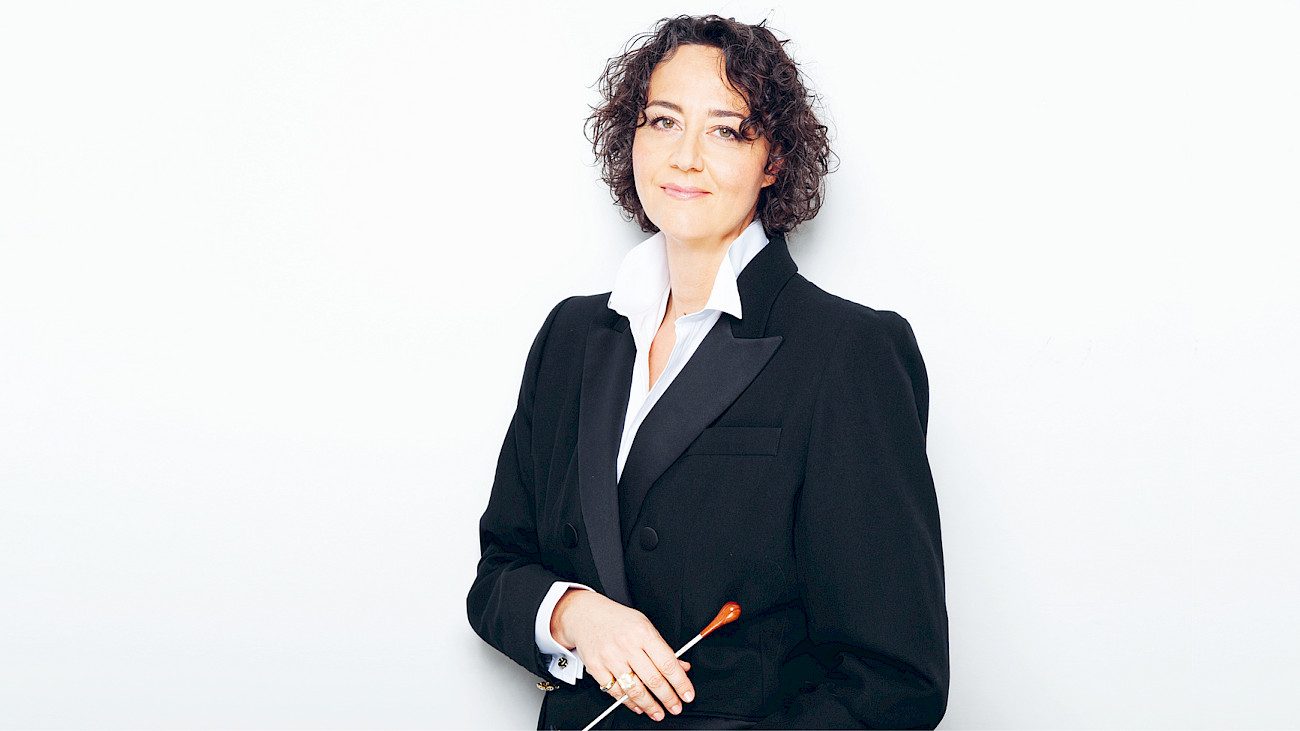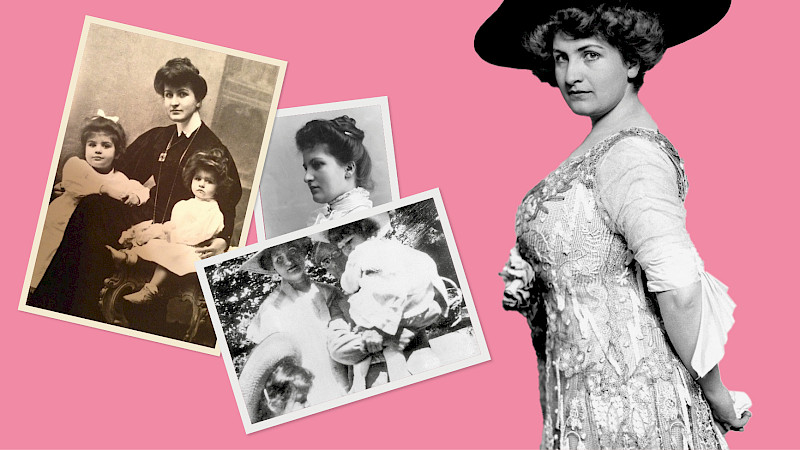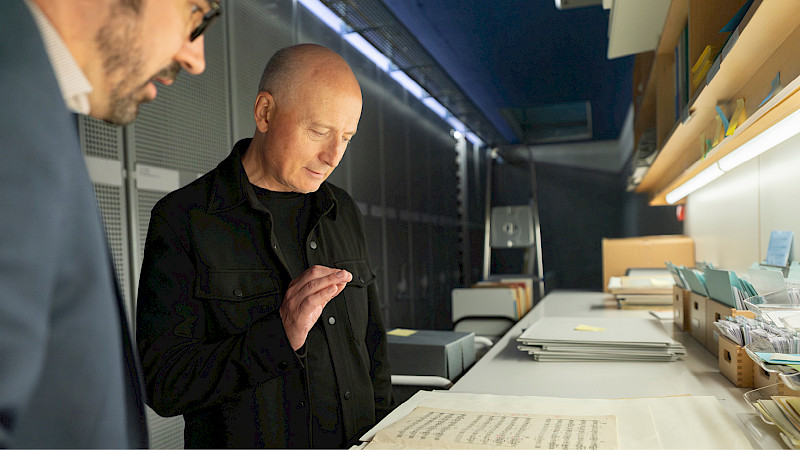
The singer as conductor
Nathalie Stutzmann from France has sung on many major stages - now she is conducting the Tonhalle-Orchester Zürich for the first time.
In January 2024, French conductor Nathalie Stutzmann was honoured at the Oper! Awards as "Best Conductor of the Year". The reason for this was her "Tannhäuser" at the Bayreuth Festival, a performance after which the media raved in unison about the perfect balance between the orchestra and the voices. This is not surprising. Nathalie Stutzmann knows exactly what singers need - after all, she was one herself.
Or rather: She still is. Although she no longer performs, when she sings phrases in orchestral rehearsals, it quickly becomes clear that her alto voice has lost none of its lustre. In interviews, she likes to emphasise that she didn't become a conductor because her vocal powers were waning. It was because she always wanted to.
As the daughter of a couple of singers, she travelled very different musical paths from an early age. She sang, played the bassoon, piano, cello and viola and also studied conducting. But back then, in the early 1980s, a career as a conductor did not seem to be a realistic prospect. So she relied on her voice - a distinctive, warm, unusually dark voice that quickly attracted attention. Nathalie Stutzmann was soon travelling extensively on various major stages, her repertoire ranging from Handel and Wagner to the present day.
But the dream of conducting remained. She realised it in 2009 by founding the Orfeo 55 ensemble, which she shaped both as a conductor and a singer. And she found support from stars on the podium who had come to appreciate her as a singer: the late Seiji Ozawa, for example, or Simon Rattle, who praised her as a "complete musician".
She has since joined a whole series of major orchestras: in Philadelphia and London, in Hamburg and Bamberg. She gave up her job as chief conductor in Kristiansund, Norway, and is now music director in Atlanta. And now she is making her debut with the Tonhalle-Orchester Zürich with a programme that can certainly be heard as the sum of her experiences: In songs by Henri Duparc, soprano Diana Damrau will be able to rely on her vocal understanding. Tchaikovsky's Symphony No. 5 reveals her flair for late romantic sounds. And there is also the overture to Wagner's "Tannhäuser", which brought her so much happiness in Bayreuth.





